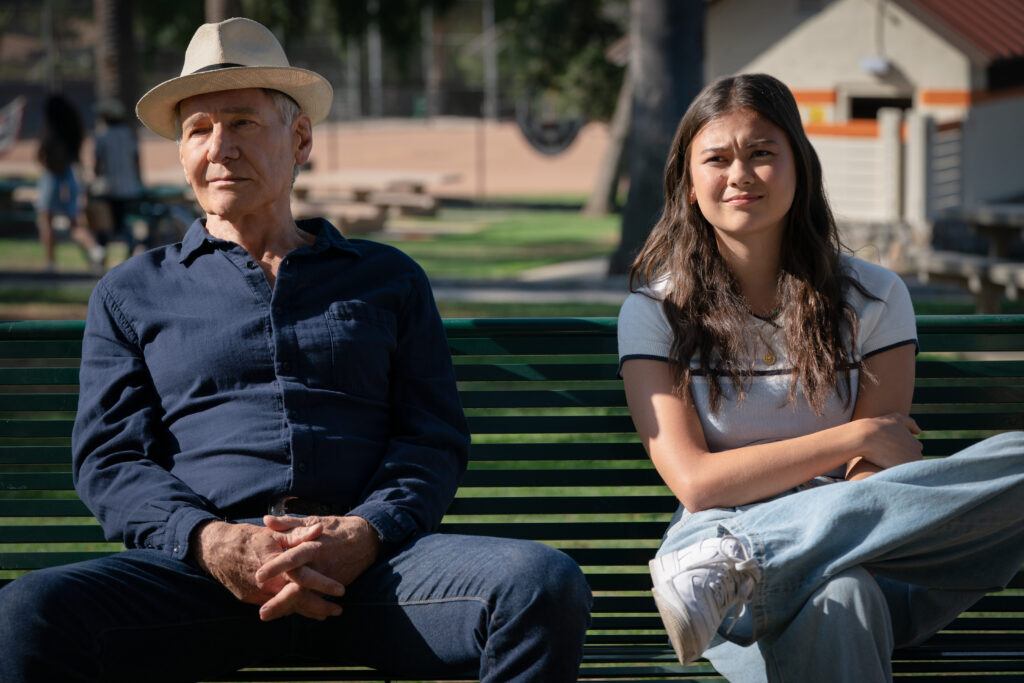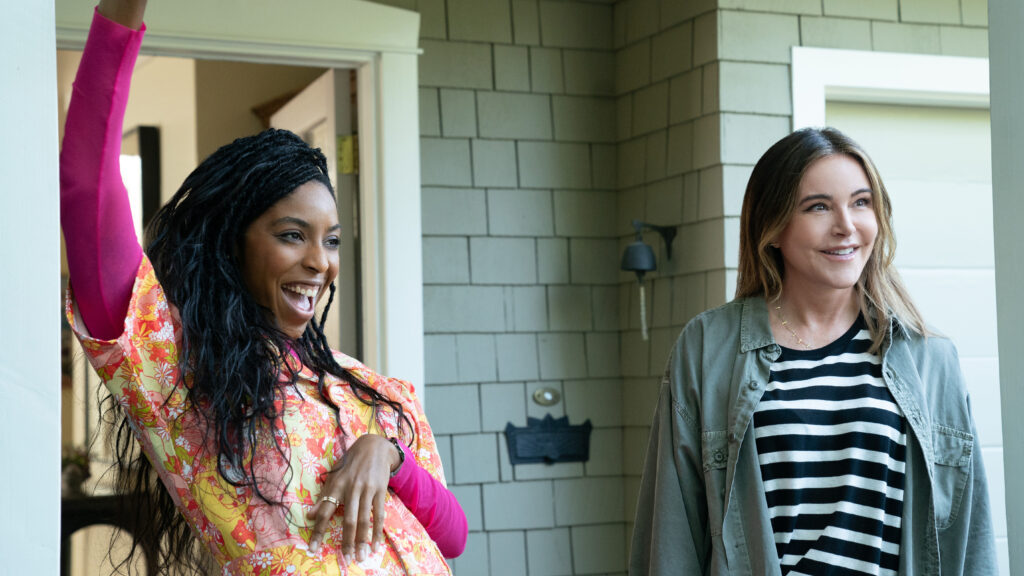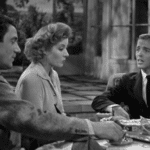In Alan Moore’s Watchmen an oft-repeated joke (that predates Moore) tells the story of a man who goes to a doctor to cure his depression. The Doctor tells him to go see the great clown Pagliacci who is performing that night in town. The man then replies with sadness, but Doctor I am the great Pagliacci.
You can see how this would be difficult for Pagliacci, and at the start of Shrinking we find a character in a similar state, as Jason Segel’s character Jimmy Laird is a depressed therapist who isn’t all there for his patients because he’s not all there for himself after his wife died.

Harrison Ford and Lukita Maxwell in “Shrinking,” now streaming on Apple TV+.
Fortunately for Laird, he isn’t a character in one of Moore’s graphic novels, for Laird is surrounded by the bubbly equivalent of a Ted Lasso-like team of supporters and family. Of course this warm, welcoming, and a bit unrealistic but still delightful community isn’t at all surprising considering that aside from Jason Segel, one of the creators, he is joined by Bill Lawrence (Scrubs, Ted Lasso) and Brett Goldstein on the writing staff.
What is surprising – even still to Brett Goldstein apparently – is that one of the shrinks, Dr. Paul Rhoades, who is both a superior and unwitting father figure to his colleagues, is played by Harrison Ford. Joining Ford as well is the delightful, and wonderfully cast, Jessica Williams (2 Dope Queens & Daily Show fame), who plays Gaby a younger, dynamic shrink. Between the three of them they represent a full spectrum of therapist life, but also they build bonds between each other that goes beyond the professional.
Joining this quirky family of characters, who are so insular as to be sitcom-esque and not in a negative manner, you also have Laird’s daughter Alice played by Lukita Maxwell, Laird’s best friend Brian, played by Michael Urie, his newest patient Sean, played by Luke Tennie, and his neighbors Liz, played by Lawrence’s real life wife and the always wonderful actress Christa Miller, and her husband Derek, played by Ted McGinley.

Jessica Williams and Christa Miller in “Shrinking,” now streaming on Apple TV+.
Alice and Liz are probably the strongest of these characters, though they all add wonderfully to the community formed by this show. Laird’s daughter Alice is struggling the most as we meet her, as she’s had to deal with her mother’s death without her father who has insulated himself in his grief and turned to drugs and fantasy for escape. Liz on the other hand, in a particularly poignant reveal thanks to Miller’s acting, showed her love of Alice may be in part too her struggling to find her own fulfilment as a now empty nester whose own children have all left the house. This give’s Liz’s character much more depth than simply being a ‘nosy neighbor’ comic relief, which is what she almost became in the original drafts.
Together the writers have done a wonderful job interweaving these characters’ stories, some quite hilarious and others quite serious, in ways that in lesser shows would be done in a manner that feels forced. At the hands of Segel, Lawrence, and Goldstein, all veterans now when it comes to ensemble casts and stories, you can feel the care for these characters.
Though the finale took a turn that makes the show feel more HBO than Lasso-verse, I’m excited to see what Season 2 will provide, as I know I’m in great hands with this team.









